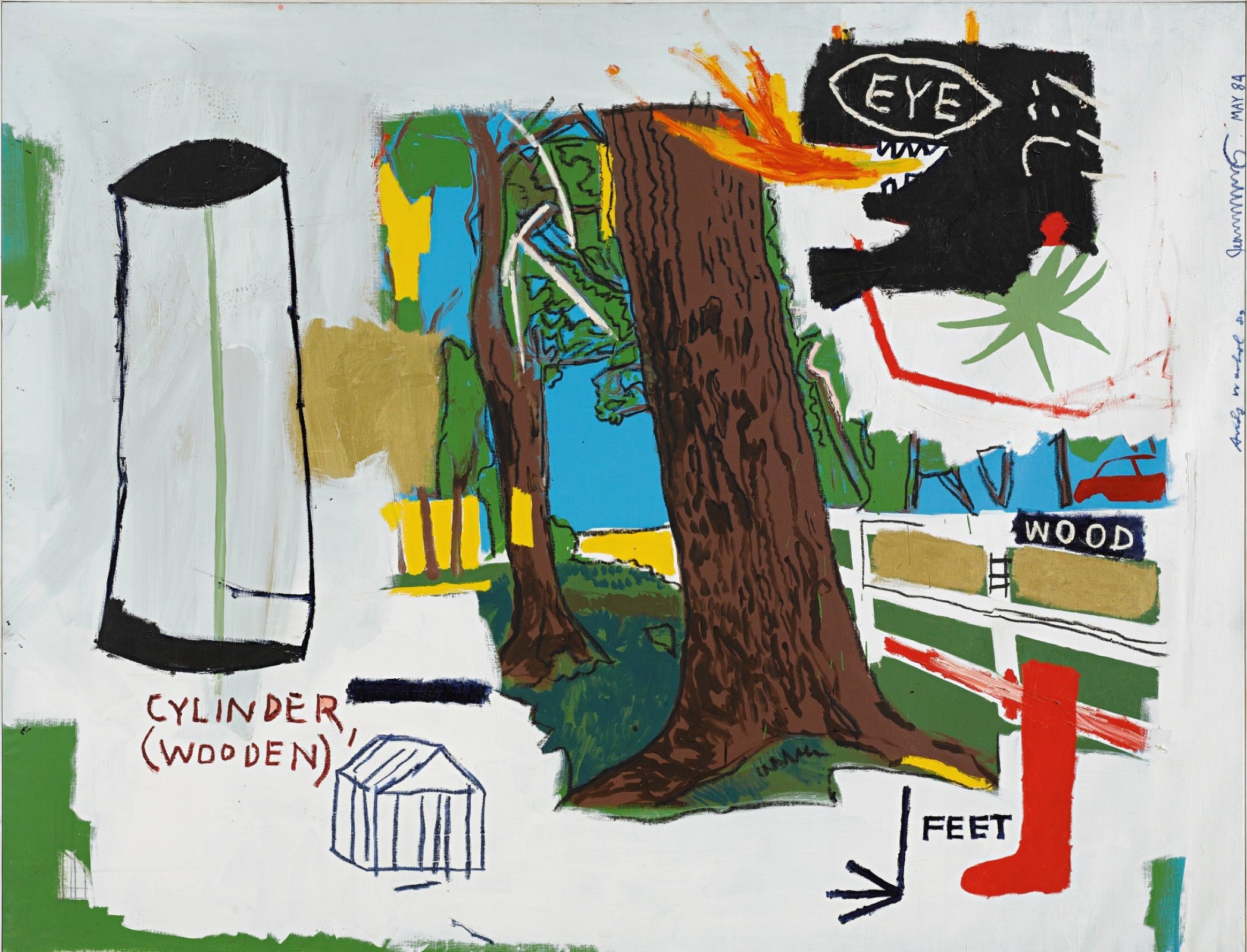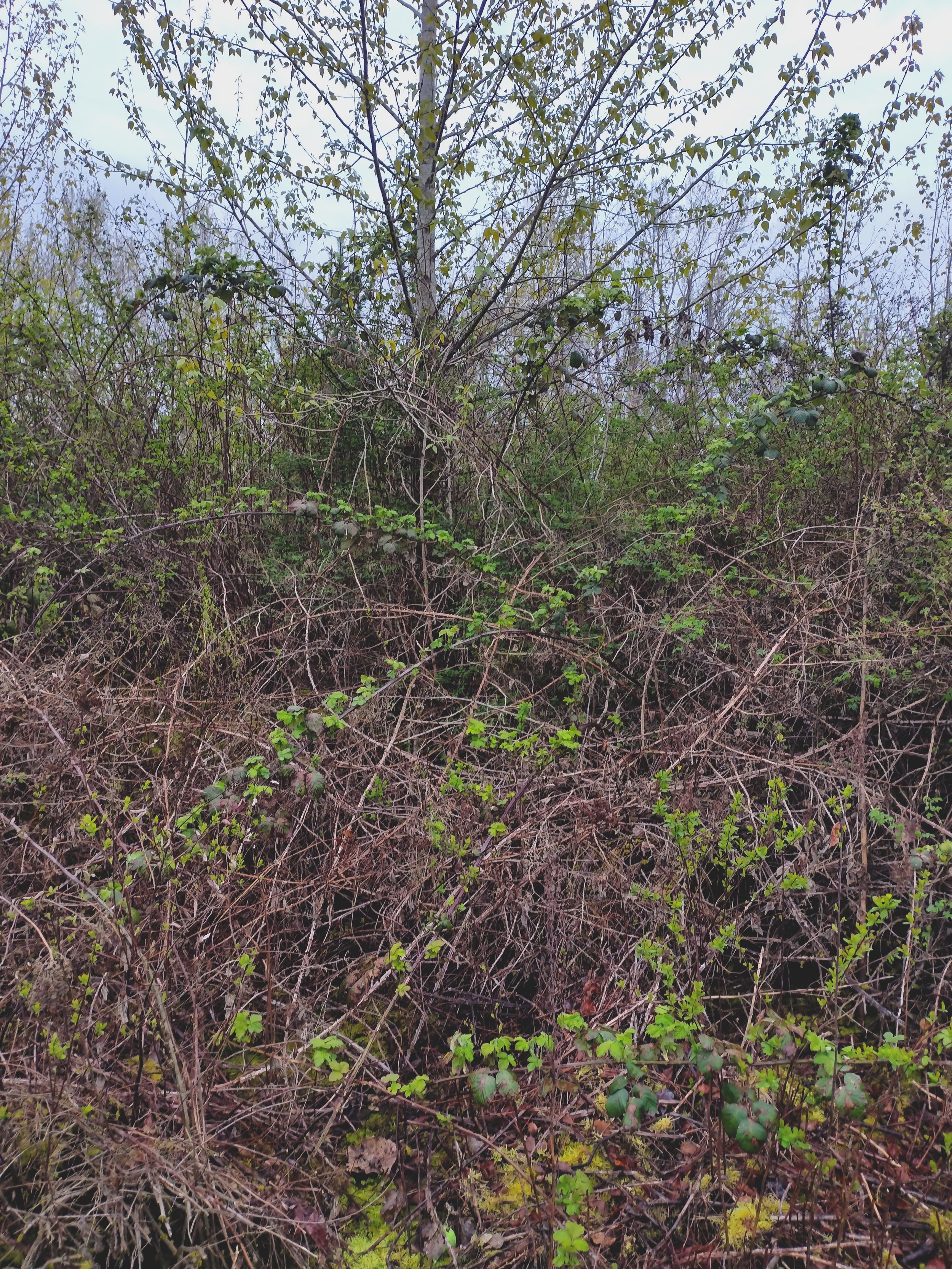Where to Begin
Learn to recognize plots of orphaned countryside and to diagnose their ills.
The Urban Guerrilla Permaculture Campaign revolves around adopting, nurturing, and cultivating plots of orphaned countryside found in and around cities.
Plots of orphaned countryside are those feral, undeveloped (semi-)green spaces and brownlands that occupy the grey zones at the edges of developed properties and public spaces.
Plants that develop and grow in plots of orphaned countryside live without communities of healthy elders to care for them. Without well-established plants to guide them, nurture them, and check them in their development and growth, these orphaned plants develop and grow just like orphaned human children who haven’t healthy elders to care for them. This is not to say that these plants fail to grow and develop but, rather, it is to say that they must be remarkably resilient and lucky if they are to grow and develop in healthy ways and form healthy social bonds with one another.
Our guerrilla permaculture projects aim to transform mean plots of orphaned countryside into vibrant ecological communities that provide peoples with nourishment and shelter in return for care and stewardship. In order to achieve this aim, we must learn to play many of the roles that healthy elders play in vibrant ecological communities and, going further, we must prepare the way for future generations of peoples, animals, plants, and fungi to partake in these nurturing roles with us and to take over these nurturing roles from us.
Survey and map the plots of orphaned countryside that surround you.
Once you have learned how to recognize plots of orphaned countryside and to diagnose their ills, the next thing to do before engaging in any guerrilla gardening is to make an inventory and survey of the orphaned countrysides that are to be found near your dwellings and along your everyday commutes.
Spend time exploring the orphaned countrysides that you find and make sure to document the state in which you find them. Note the topography of the land and make records of all the species of plants, animals, and fungi already residing on and around the land.
It is important that your guerrilla gardening operations are informed by what has already taken place in a given location and by what is actively taking place. To that end, it is important that you research the ecological, geological, and social history of the region you are surveying, and it is important that you research the ways in which climate change is affecting your region.
You should also find out who currently claims the plots of orphaned countryside that you are most drawn to, and make efforts to learn the plots’ histories of occupancy. You should reach back and recover centuries and even millennia of histories of occupancy to the extent that doing so is both feasible and possible.
Collect and analyze soil and water samples from plots of orphaned countryside.
“Soil and water are the two foundational elements of gardening […] and life on Earth. But soil and water are not homogenous materials. In fact, they’ve myriads of different qualities around the globe and even within a single garden.”
Before making any plans to engage in a guerrilla gardening operation, it is important that you have a sense for and understanding of the chemical properties and the biological populations that characterize the soils and waters that you will be working with.
Get organized and develop plans to adopt, nurture, and cultivate plots of orphaned countryside.
Organize a community to gather and study resources on permacultures, indigenous plants, ethnobotany, and landscape architecture.
Consider the ways in which you might work together to transform a given plot of orphaned countryside into a vibrant edible ecosystem that pivots on the health and well-being of plants that are indigenous to your region.
Consider the social histories of the lands that you aim to transform and ideate transformations that will double as artful reparations with respect to and for the peoples who have been displaced from and exploited on the lands you are tending to.
Instead of submitting your ideas to the administrative and supervisory organs of governments, corporations, and charities in order to be granted permissions and funds to realize them, consider how you might realize your ideas by taking direct action and practicing the art of fugitive planning.




